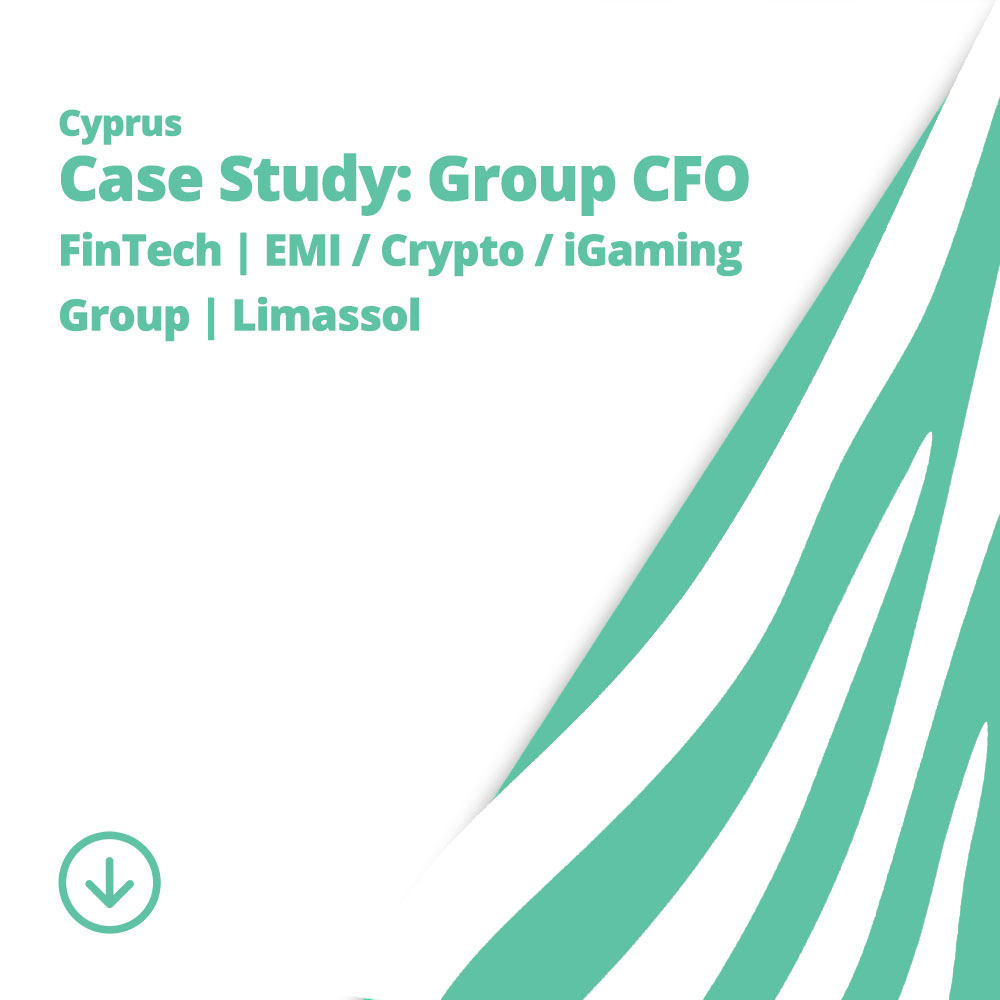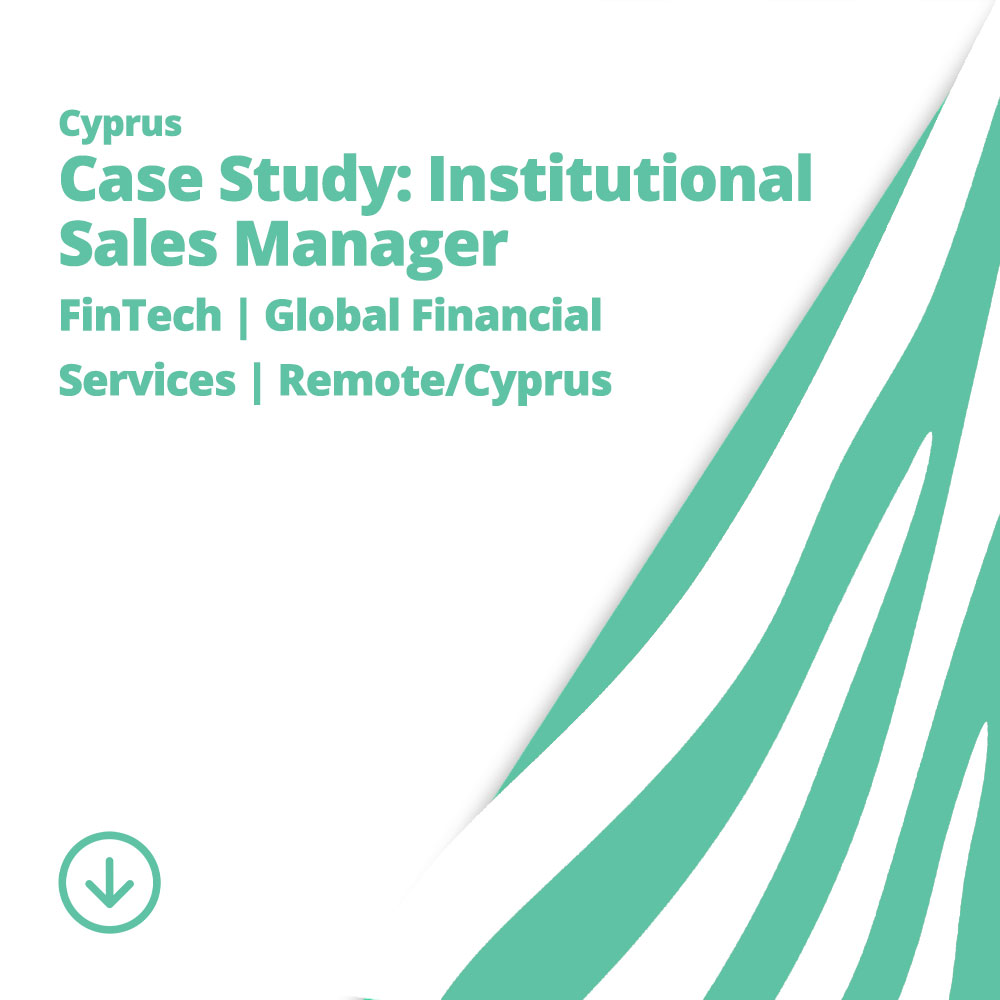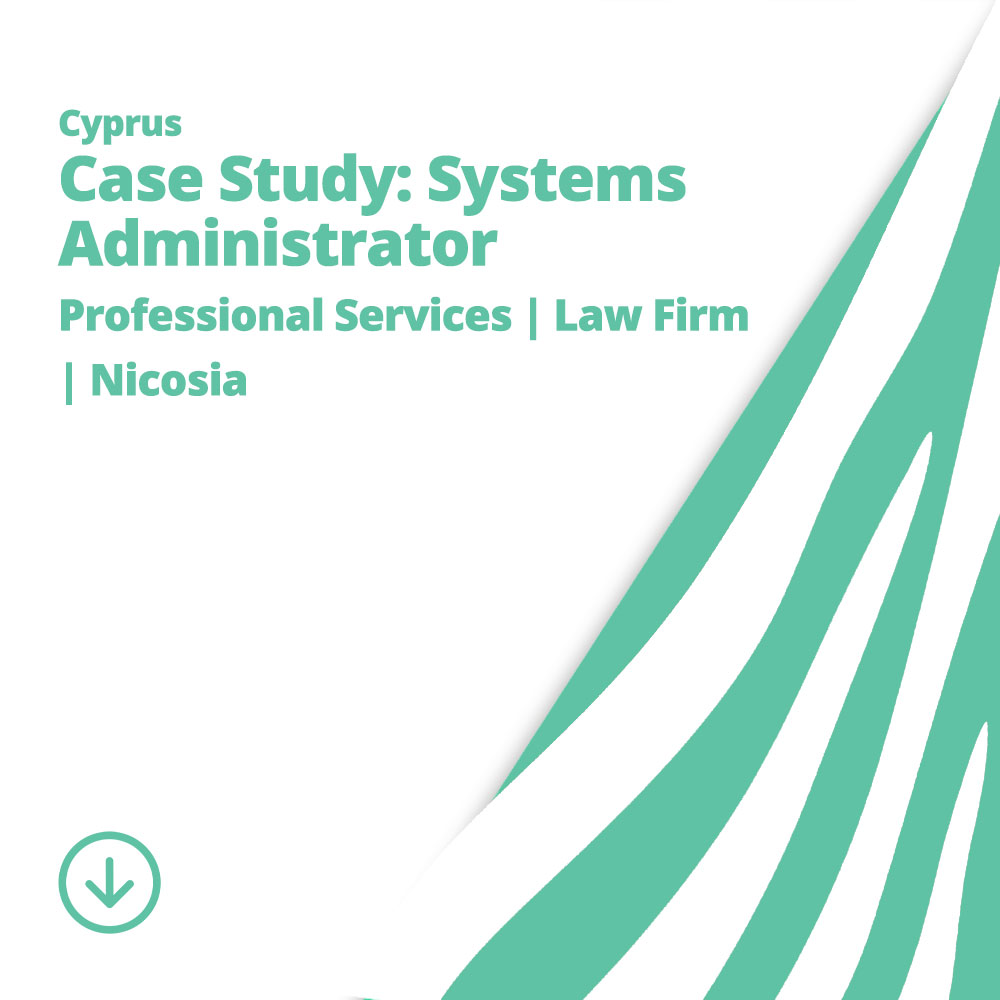Why Cyprus Is Still One of the Most Attractive EU FinTech Hubs and What Could Break That Advantage
Cyprus has earned its place as one of Europe’s noteworthy FinTech and digital finance hubs. Over the past decade, the island nation has attracted a cluster of companies in fintech, payments, electronic money (EMI), forex trading, iGaming, and RegTech/Compliance, thanks to a mix of strategic advantages. At Emerald Zebra, Cyprus based leading recruitment agency for the fintech and payments sector globally, we take a look at why Cyprus remains an attractive base for these industries and what risks could erode that advantage in the coming years.
Cyprus’ Strengths as an EU FinTech Hub
Cyprus offers a compelling package of benefits that draw fintech entrepreneurs and established companies alike. Key current strengths include:
- Access to the EU Single Market (“Passporting”) – As an EU and Eurozone member, Cyprus grants fintech, payment and investment firms full access to the EU’s 450+ million consumer market under a single license. A startup licensed in Cyprus can “passport” its electronic money, payments or investment services across all EU/EEA states without separate country licenses. This EU market access, combined with alignment to EU regulations like MiFID II and PSD2, gives Cyprus-based firms both reach and regulatory certainty on par with any EU jurisdiction.
- Business-Friendly Regulatory Environment – Cyprus has a reputation for relatively efficient, pragmatic regulation in fintech and finance. The Central Bank of Cyprus and CySEC (the securities regulator) oversee a fully EU-aligned framework (PSD2, EMD, MiFID II, etc.) while maintaining a pro-business stance. Licensing for Electronic Money Institutions (EMIs) and Payment Institutions is known to be straight forward and clear, with Cyprus issuing new EMI licenses in recent years and keeping cancellation rates low by EU standards. Regulators have also embraced innovation: CySEC launched a fintech innovation hub and regulatory sandbox to let companies test new products in a controlled environment, signaling openness to new business models. The result is a balance where fintechs can operate under EU rules with less bureaucracy, guided by regulators who provide clarity and support (e.g. through “Innovation Hub” consultations).
- Competitive Tax & IP Regime – Cyprus long ago established itself as a tax-efficient jurisdiction, which remains a draw for international business. The standard corporate tax rate (12.5%) has been one of the lowest in the EU. Even with the upcoming global minimum tax rules (15% for large multinationals), most startups and mid-size firms still enjoy low effective tax rates. Furthermore, Cyprus offers an attractive IP Box regime – qualifying intellectual property income can be taxed at an effective rate as low as 2.5%, encouraging fintech and software firms to house their R&D and IP holdings on the island. Add to this special incentives for expatriate executives and new residents (such as 50% income tax exemptions), and the financial benefits for both companies and highly skilled employees are significant. The legal system, based on English common law, provides transparency and familiarity for foreign investors.
- Skilled, English-Speaking Talent Pool – An often-cited advantage of Cyprus is its human capital. The country boasts the highest number of tertiary-educated graduates per capita in the EU, and roughly 73% of Cypriots speak English fluently. Business in Cyprus is routinely conducted in English, and many professionals have international education or experience. This talent base is bolstered by a steady influx of skilled foreign workers and returnees: Cyprus’s attractive lifestyle (300+ sunny days a year, safety, and low cost of living) helps lure experts from abroad and retain local graduates. Salaries and operating costs, while rising, remain slightly lower than Western European hubs. See Emerald Zebra’s latest salary survey report for Cyprus available for free download. This means fintech and gaming companies can hire quality talent at a competitive cost. The multilingual nature of the workforce (including many Russian, Arabic, and other EU language speakers) is a bonus for companies serving diverse markets. All these factors contribute to Cyprus being viewed as a growing “talent hub” in Europe.
- Strong Innovation Culture and Public Support – Cyprus has pivoted decisively toward innovation and tech in recent years. The government – through agencies like Invest Cyprus – actively promotes the island as a tech and finance hub. High-profile initiatives include overseas roadshows pitching Cyprus to tech giants (recently in the U.S. and India), plans for new tech parks, and substantial EU Recovery funding (over €1B) earmarked for digital transformation. These efforts are paying off: Cyprus was recognized for the “Best Worldwide Climb” in startup ecosystem rankings, breaking into the global top 50 for the first time. New incubators and funds (e.g. the Cyprus Equity Fund) are boosting the startup scene. For fintech and financial services, government policy has been generally supportive evidenced by Invest Cyprus serving as a one-stop-shop for international investors and advocating for reforms to keep the business climate competitive. There is an innovation-friendly climate where public and private sectors both push for growth in fintech, RegTech, and digital finance.
- Thriving Finance, Forex & iGaming Ecosystem – Success breeds success: today Cyprus hosts a critical mass of companies in online finance and gaming that reinforce the ecosystem. The country is an internationally recognized forex and trading hub, home to over 190+ licensed investment firms (most clustered in Limassol) and some of the world’s leading names in online trading. These firms chose Cyprus early (thanks to MiFID passporting in the 2000s) and continue to innovate (many now incorporate AI, blockchain and offer crypto CFDs). Likewise, Cyprus has become a popular base for payment and e-money institutions – the regulator’s approachable licensing and supervision has attracted numerous EMIs, payment processors and fintech startups seeking an EU base. The island also hosts crypto-asset businesses; even before the EU’s new MiCA regulation, Cyprus created a registration regime for Crypto Asset Service Providers (CASPs) under AML rules, and several blockchain fintech firms have been approved. The iGaming and online betting sector too has a presence: several gaming operators and software providers run significant operations out of Cyprus, leveraging the local talent and service providers (many Cypriot tech firms cater to both fintech and gaming). Being home to these intersecting industries – payments, trading, crypto, gaming – creates synergies. For example, a compliance consultant or software developer in Cyprus often has cross-domain expertise (forex & betting), and companies benefit from a broad pool of professional services (legal, accounting, tech) familiar with high-compliance industries. This ecosystem density, combined with Cyprus’s location bridging Europe and the Middle East, makes it an appealing launchpad for companies with cross-border ambitions.
In short, Cyprus’s fintech appeal rests on EU market access, supportive (yet EU-harmonized) regulation, a friendly tax regime, quality talent, and an energetic innovation environment. These factors have positioned Cyprus as a gateway for companies operating across Europe and even into MENA. It’s no surprise that experts now count Cyprus among the top options to build an EU-based fintech venture in the post-Brexit era. But will these advantages hold?
Emerging Risks That Could Undermine the Advantage
Despite the rosy picture, Cyprus’s status as a fintech and finance hub isn’t guaranteed. A number of rising challengescould chip away at its competitive edge if not managed carefully:
- Tighter EU Regulations Increasing the Burden – The era of “light-touch” regulation (if it ever truly existed) is ending across the EU, and Cyprus is no exception. A wave of new EU laws – from Anti-Money Laundering reforms to crypto-asset rules are introducing more stringent compliance obligations on financial firms. For example, the EU’s Markets in Crypto-Assets (MiCA) Regulation fully applies as of December 2024, and the Digital Operational Resilience Act (DORA) from early 2025, imposing rigorous standards on crypto services and IT/cyber resilience respectively. These rules are positive for consumer protection and stability, but they undeniably raise the compliance bar for fintech companies in Cyprus (and elsewhere). In Cyprus, regulators have been proactive in transposing such requirements, CySEC and the Central Bank are already adapting supervisory frameworks to enforce MiCA, DORA, and related EU digital finance laws. Additionally, Cyprus in 2025 undertook a major AML overhaul: establishing a new National Sanctions Unit and amending AML laws to cover crypto activities more strictly. New directives extend customer due diligence, require stronger internal controls (e.g. boards must better empower compliance officers), and even prohibit fully outsourcing compliance functions. The clear message is that regulatory expectations are rising sharply. While this boosts Cyprus’s credibility as a fully compliant jurisdiction (shaking off any past reputation for laxity) it also means higher costs and complexity for firms. Small fintech startups may find the overhead of DORA’s ICT security mandates or MiCA’s reporting and capital rules challenging. Some businesses that came to Cyprus for a lighter regulatory touch could rethink their plans if compliance becomes too onerous. In short, the very EU alignment that enables Cyprus’s access also means strict EU rules to follow – a double-edged sword that requires founders and investors to be prepared for more intensive governance, risk and compliance work.
- Shortage of Compliance & Risk Talent – With regulation tightening, the demand for skilled compliance, risk and regulatory personnel has skyrocketed, but the talent supply hasn’t kept fully up. Cyprus’s pool of experienced AML officers, compliance managers, and cybersecurity experts is growing, yet many firms report difficulty hiring enough qualified professionals and as demand increases, supply becomes expensive, well above the initial salary expectations quoted by external and government sources, a result of basic economics when demand outstrips supply. This is also why Emerald Zebra deem it important to have full transparency for salary ranges in such a small market in Cyprus at works meticulously to produce their free, in-depth salary report based on their Cyprus wide, robust data from the industries employees and employers. Financial companies are all competing for the same compliance talent, from EMIs and banks to crypto exchanges and gaming operators. Emerald Zebra’s own industry analysis noted that “demand remains especially high for regulatory and oversight roles as financial firms navigate strict EU/AML rules. ”emeraldzebra.cy. This talent crunch can become a serious bottleneck: if a fintech can’t find a Money Laundering Reporting Officer (MLRO) or a payments risk manager, it may delay operations or fall out of compliance. If the cost to hire is high, it leads to a rethink on proceeding with opening an office and having a presence in Cyprus. Moreover, seasoned compliance professionals today are selective – they look at a company’s culture and commitment, not just salary. Regulated without a past history of fines is also taken into strong consideration, as well as the stability, structure, UBO background and financing. In interviews, some Cyprus-based compliance officers have voiced frustration that “too many stakeholders still don’t understand what compliance actually does” or that teams are reactive rather than proactive about new regulations like MiCA and DORA emeraldzebra.cy. Such internal gaps can lead to burnout and turnover in these roles. Indeed, retention is part of the challenge: many skilled professionals jump to new opportunities if they feel their current employer isn’t giving them the support or career growth they seek (over 60% of local finance-sector attrition was linked to career stagnation rather than pay). All of this means companies must invest more in attracting, developing and empowering compliance talent – potentially raising operating costs. If not addressed, a compliance labor shortage could slow the sector’s momentum or lead to regulatory slip-ups. It’s a growing pain of a maturing hub: the success of attracting many regulated businesses now tests the capacity of the local workforce and education system to produce enough specialists (and may require bringing in more foreign expertise in the interim).
- Intensifying Competition from Other Hubs – Cyprus’s advantages, while strong, are not unique. Other jurisdictions in the EU are also vying to host fintech and digital finance companies, and some offer compelling perks of their own. Malta, for instance, has been a direct competitor in attracting EMIs, payments and gaming firms – it similarly offers English language, EU passporting and historically “accommodating” regulation. In 2025 Malta saw even more new EMI licenses than Cyprus, though it faces challenges in other areas (like higher cancellation rates for certain licenses). Ireland and the Netherlands present an alternative for fintechs prioritizing stability and infrastructure: these countries boast very robust regulatory reputations and tech ecosystems, albeit at higher cost. Lithuania was once the Baltic darling for fintech licenses, and while it experienced setbacks (licensing pauses and regulatory crackdowns), it could re-emerge with a stricter but clearer regime. Larger financial centers like Germany and France are also stepping up their fintech game, Germany in particular has become Europe’s leader in crypto-asset licensing under MiCA’s new regime. The point is, fintech founders now have an array of choices within Europe. If Cyprus’s value proposition falters – be it due to slower licensing times, talent shortages, or any loss of credibility, companies can and will consider relocating or choosing another base. Post-Brexit, the pie of EU market entrants is Cyprus’s to win or lose, and competitors from Amsterdam to Valletta are eager to capture those businesses. Continuous improvement is needed for Cyprus to stay on top. As one analysis put it, Cyprus can’t rest on past success; it must modernize its approach (e.g. speeding up licensing, adopting risk-based oversight) to keep pace with both EU mandates and innovative rivals.
- Maintaining Public-Private Alignment – Finally, a softer but crucial factor is how well the public sector (government/regulators) and the private sector (industry) work in unison. Cyprus’s recent progress has been driven by a relatively aligned vision – government agencies courted investors while regulators gradually updated frameworks. Going forward, that alignment will be tested. The policy goals (attract tech investment, ensure compliance, grow the economy) must translate into consistent action on the ground. If there’s mismatch or uncertainty – for example, if promotional promises outstrip regulatory reality – the hub could lose momentum. A few areas to watch: Licensing and supervisory consistency is one. Firms still report that obtaining certain licenses can take upwards of 12 months in Cyprus in some cases, which can be frustrating when compared to faster “sandbox” or provisional license schemes elsewhere. The regulators are bound by EU rules (unlike Dubai or Abu Dhabi which can be more agile), but there is room for Cyprus to innovate within those bounds to avoid bureaucratic delays. Keeping a constructive dialogue between industry and regulators is critical, initiatives like CySEC’s Innovation Hub and frequent industry roundtables can help prevent misunderstandings and ensure new rules are implemented with pragmatism. Internally, companies also need to align their own teams with the new normal (e.g. boardrooms need to listen to compliance officers). The public-private alignment extends to talent strategy as investments must sync with businesses’ needs for skills in fintech, data, and compliance. Any disconnect, whether due to political shifts, regulatory over-corrections, or lack of coordinated planning – could undermine Cyprus’s narrative as a place where innovation and regulation are in balance. Consistency and clarity, from high-level strategy down to day-to-day execution, will be key to not breaking the spell that currently attracts companies to Cyprus.
What to Watch in Q4 2025 and 2026
For founders, executives, and professionals in Cyprus’s fintech and finance scene, the next year promises significant developments. Here are a few key areas to pay attention to as 2025 closes and 2026 begins:
- Major EU Regulatory Milestones – The end of 2024 and into 2025 marks the implementation of landmark EU regulations. MiCA (the crypto-asset framework) is now rolling out across Europe – firms dealing in digital assets should ensure they take advantage of Cyprus’s proactive stance (CySEC has offered transitional notifications to help companies get authorised under MiCA more easily). DORA (operational resilience) likewise is now in force, meaning by 2025 companies must meet new standards for ICT risk management and incident reporting. Looking ahead, PSD3 (the next Payment Services Directive) is in the proposal stage – if enacted in 2025/26, it could overhaul open banking and licensing for payment institutions. Additionally, an EU regulation mandating instant payments in euros is on the way, which will affect banks and payment firms’ technology and processes. All these regulatory changes require early preparation. Firms should be budgeting for compliance projects and staying in close contact with advisors and regulators so they aren’t caught off guard. The intent is to enhance consumer protection and innovation, but the practical effectwill be new compliance checklists in areas like crypto asset custody, outsourcing risk, and transaction monitoring.
- Heightened Compliance Enforcement – Rules on paper are one thing – enforcement is the next chapter. In 2025–2026 we’ll see regulators in Cyprus and the EU actively enforcing the new standards. Cyprus’s new National Sanctions Unit will become fully operational by the end of 2025, meaning companies must be ready to swiftly comply with sanctions reporting duties (e.g. reporting any assets linked to designated persons within tight deadlines). CySEC and the Central Bank are expected to intensify inspections for AML and operational resilience. We also anticipate European-level oversight kicking in: the EU’s new Anti-Money Laundering Authority (AMLA) is slated to begin direct supervision of certain high-risk entities by 2026. If any Cyprus-based fintechs or banks are selected for EU-level supervision, they will face even more scrutiny. Separately, CySEC has signaled tougher oversight of risky investment products – for instance, it has tightened CFD trading rules to protect retail investors. And the betting/iGaming sector should watch for compliance crackdowns related to anti-money laundering and consumer protection (Cyprus has been aligning closely with EU directives on gambling advertising and AML). Founders and compliance officers should keep a close eye on regulator circulars and enforcement actions in their sector – each fine or directive issued is a clue to what standard is expected. The motto for 2025 is “no excuses on compliance” – authorities want Cyprus’s post-2025 reputation to be squeaky clean.
- Talent and Workforce Dynamics – On the human capital front, late 2025 into 2026 will likely see continued competition for top talent in fintech, compliance, and tech roles. Employers need to monitor wage trends and retention rates with many new firms setting up, the job market is candidate-driven in Cyprus. Professionals with skills in blockchain compliance, payments operations, or cybersecurity will find themselves highly sought after. Companies should also be aware of the “brain gain” initiatives underway: for example, Cyprus launched campaigns to entice diaspora professionals back home (London saw a roadshow in mid-2025 to lure Cypriot tech workers back). This could gradually ease talent shortages if successful, but also means local employers might need to offer compelling roles to attract returning expats. Perhaps unrealistic when you consider what the competing salary packages should be to attract UK talent to Cyprus. Remote work trends are another factor, very few firms in Cyprus hire talent abroad or allow more remote flexibility to fill gaps. By 2026, we may see a more globally integrated workforce in Cyprus’s tech/fintech scene, yet Cyprus based candidates will always be preferred. Both employers and job seekers should remain agile: upskilling (especially in areas like AI, data analytics, and RegTech software) will be crucial as technology reshapes finance jobs. The Cypriot government’s focus on tech education (expanding ICT programs in universities, national AI strategy) means new graduates with relevant skills will start entering the market. Professionals should seize opportunities for training, and employers might want to partner with educational institutions or offer internships to tap into this emerging talent pipeline.
- Global Expansion & Competition – Lastly, keep an eye on the broader competitive landscape and Cyprus’s positioning internationally. The government is forging new ties that could benefit local fintechs – for example, deeper partnerships with the Gulf countries (Saudi Arabia, UAE, etc.) and outreach to markets like Japan for fintech cooperation. These efforts could open doors for Cyprus-based companies to expand services into new regions or attract investment from abroad. Founders should watch for any bilateral agreements or fintech bridges Cyprus establishes. At the same time, be mindful of what rival hubs are doing: if another EU country launches a tempting incentive or a sandbox program, consider how to match that in Cyprus. Staying competitive may involve pushing for policy tweaks – for instance, industry groups might advocate in 2026 for even faster licensing timelines or for new tax credits for fintech R&D to counter moves by other countries. In essence, the horizon is one of opportunity mixed with vigilance: Cyprus can continue to thrive as a fintech hub if it embraces continuous improvement and if its stakeholders adapt quickly to the global and European trends.
Conclusion & Call to Action
Cyprus’s journey to fintech prominence shows what a strategic vision and a solid foundation can achieve. The island today offers an enviable launchpad for fintech, payments, and online gaming firms, a gateway to Europe with business-friendly policies and a talented workforce. Yet, as we’ve discussed, sustaining that success will require diligence. Companies and professionals must not get complacent: staying ahead of regulatory changes, investing in compliance and skills, and collaborating to address ecosystem challenges are all essential steps to keep Cyprus on top.
For employers in FinTech, Payments, Risk, or iGaming: now is the time to assess whether your teams and strategies are ready for the next wave of changes. Do you have the right compliance expertise to navigate new rules? Are you offering the career development that will retain your best talent? Proactive planning in Q4 2025 can make the difference between capitalizing on Cyprus’s advantages or being caught off-guard by the challenges. For professionals and job seekers: this is a moment of opportunity. The sectors driving Cyprus’s growth are evolving fast, and those who stay informed and adaptable will find exciting roles, whether it’s in a cutting-edge crypto startup or a major payment institution upping its regulatory game.
Emerald Zebra supports both employers and candidates. As Cyprus’s specialist recruitment partner in fintech, finance and gaming, we have a front-row seat to the market shifts discussed above. We help high-growth companies find the compliance officers, risk managers, technologists and leaders they need to remain competitive, and we guide talented professionals toward the opportunities where they can make an impact. The road ahead for Cyprus’s fintech scene is full of promise and complexity. Get in touch with Emerald Zebra to ensure you’re in touch with the best talent or roles in this evolving sector. Together, we can help you find the right people and the right employer for your success as we head into 2026.
Donna Stephenson is the Founder and CEO of Emerald Zebra, a specialist recruitment agency in Cyprus focused on the FinTech, Tech, Finance and iGaming sectors. With 25 years’ experience, she previously founded GRS Recruitment which she co-led to become Cyprus’s leading recruitment agency before successfully exiting the business. She has a proven track record in building and growing recruitment businesses from the ground up, with deep expertise in executive search, market entry hiring, and supporting fast-scaling companies through tailored talent strategies.
A strong advocate for pay transparency and modern workplace practices, Donna also founded HR PowerBreakfast, a thought-leadership series for Cyprus’s HR and executive community. She has spoken at numerous industry events, including TEDxMolos Women 2024, sharing insights on leadership, trust, and aligning work with purpose.



